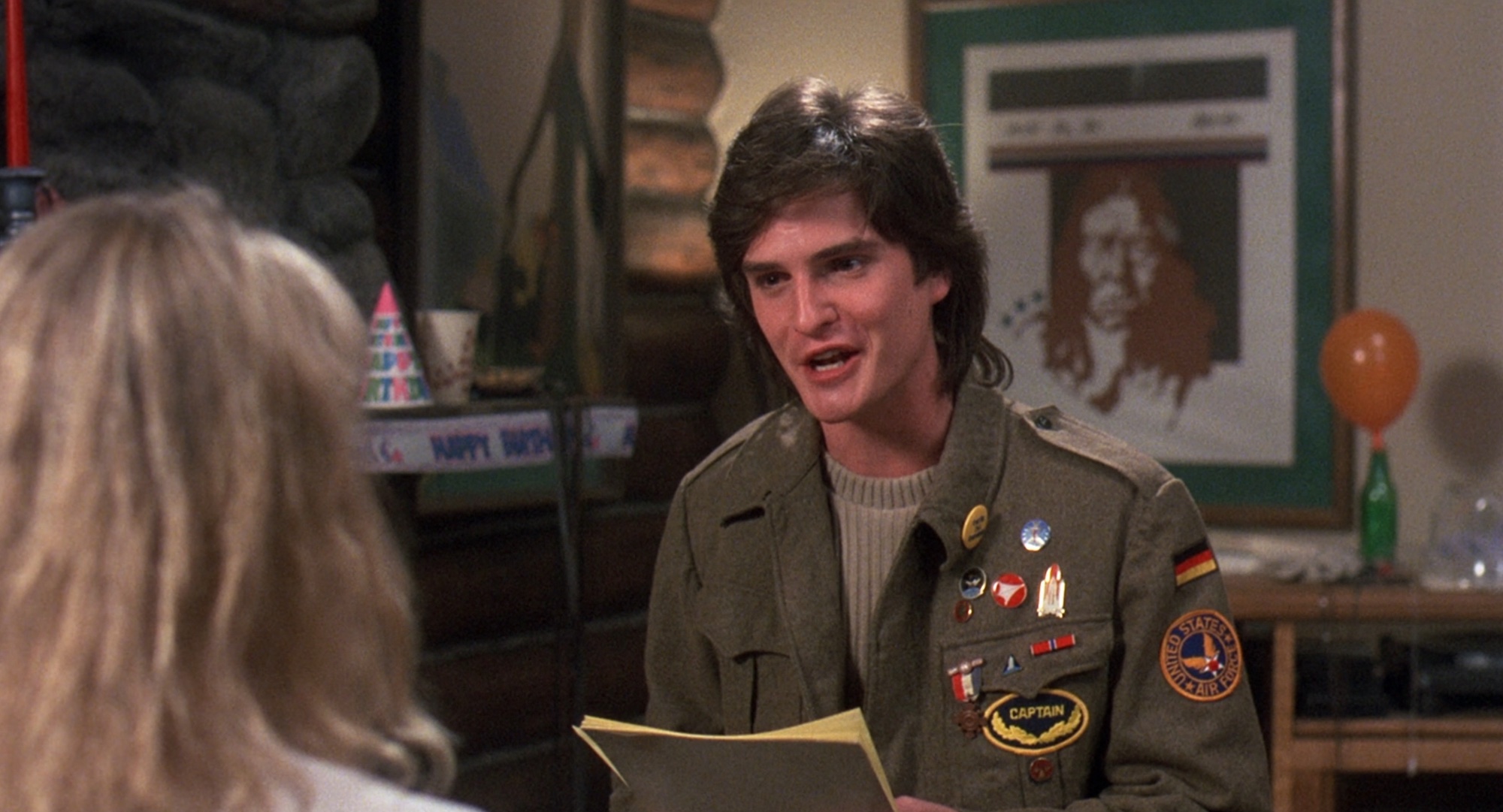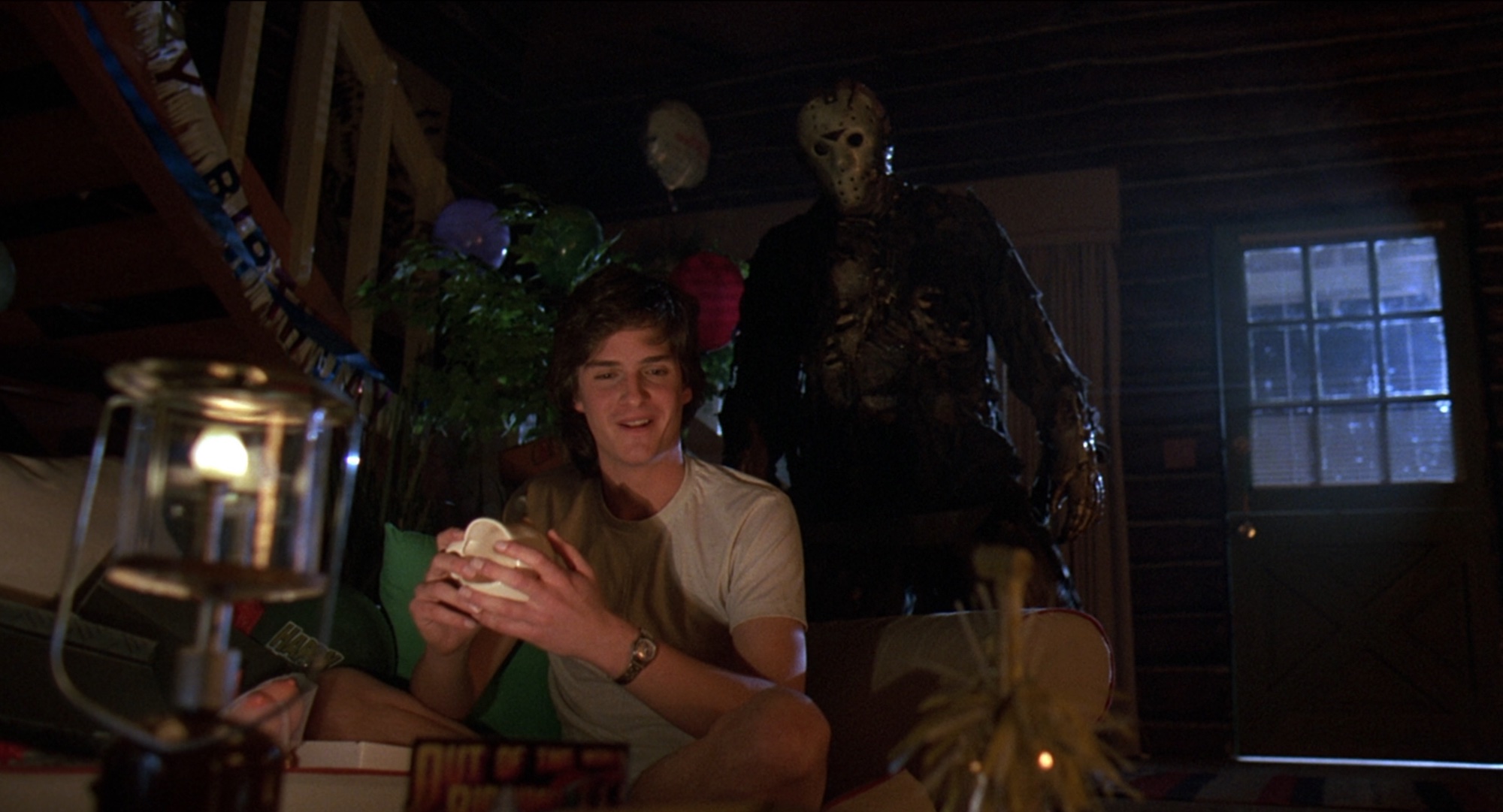
Meet Eddie. He’s one of many warm-bodied meat sacks from the cinematic opus Friday the 13th Part VII – The New Blood, and up until he meets the rusty blade of our favorite, furious, New Jerseyan hockey player, he’s a struggling and unpublished science-fiction writer of such adventures as Starlicon and Star Mummy. Eddie isn’t taken very seriously by his friends, who are much more interested in having sex in a van, or having sex in a filthy lake, or tiptoeing into a creepy-ass barn to potentially have sex in it than humoring Eddie by playing audience to his latest batch of loose-leaf writing that he adorably carries with him seemingly at all times. And before he gets his throat cut in half after playing with a Personal Penis Enlarger, he rattles off one of the best inadvertently self-defeating owns of all time following his inability to get laid by Crystal Lake’s meanest girl: “Rejection. Okay, fine. I can take it. I’ve been rejected by some of the finest science fiction magazines in the continental United States!”
In a spiritual quasi-follow up to Purging the Bad Mojo; or, How I Learned To Avoid Committing Suicide Over Bad Reviews, I want to talk about another pitfall when it comes to writing: rejection. If you’re going to write, you’re going to be rejected. By agents, by publishers, by your readers, and by yourself. Every time I submit a story or a manuscript for consideration and it gets rejected, Eddie’s immortal words float through my brain, offering strength, determination, spirit, and just the right amount of harmless delusion: “I can take it.”
I firmly believe that if you choose to write fiction, you have a propensity for self-loathing. Not necessarily an overwhelming propensity, but…it’s there. We writers are masochists hiding from the world while at the same time positioning ourselves as artists (ugh) with something to say and share. Within us dwells a conflict between two worlds that are entirely at odds with each other: as writers, we want to create, but we don’t want to be live on stage when we do it. We feel compelled to share an intimate part of ourselves, but we want people to read our words with their voice and bring our story to life with their imagination. We want readers to be involved in the process of creation instead of allowing them to sit back like passive bystanders and listen to a song that’s going to sound identical from person to person, or watch a movie that dictates through sight and sound what they should be feeling. We write what we have to say and then we set those words sailing in hopes they’ll find the eyes or ears they were meant to…and once those words are finally polished, published, and shipped to our readers’ homes or beamed to their various digital devices, we become removed from our latest work because it has to speak for itself now, and we’re probably already thinking about the next thing. I’ve written four books to date, and regardless of whatever positive or negative reaction they’ve received, I never want to think or talk about them ever again – they are like exes I never should’ve dated whose contacts I long ago deleted. Glad to have met you, onward and upward, etc.
As of this writing, I’ve submitted my unpublished novel to nineteen independent publishers, and as of this writing, I’ve received five formal rejections and an assumed eleven more, as we have now surpassed the anticipated turnaround time from submission to decision by several months with no official decision dispatched from said publishers. (I could easily write another rant about the treatment of authors by indie publishers, but that’s for another time). Such a reaction to something I’ve written, which has seen both my unabashed enthusiasm and my total dismissal, inevitably validates that latter self-evaluation – translation: if the nameless publisher that releases books with truly hideous cover art and has content errors all over their website doesn’t want my book, then jeepers, it has to suck..
And if my book sucks that bad…

…why the hell didn’t I see it coming?

Personally, when rejection occurs, it can generate a lot of questions. What is it that sucks? Is it the story I’ve chosen to write, the way I’ve chosen to write it, or is it me in general? Do I suck? Sure, some or all of those rejection letters are quick to assuage your fragile ego by reminding you that “these things are subjective” and “another publisher may feel differently,” but all of those paranoid internal questions about you and all the sucking are still relevant, too. How many writers continue to write and suck while believing they’re good because no one close to them has the guts to tell them the truth? How many writers are so in love with themselves that they believe their every new string of words is greater than their previous? Ideally, rejection should make you take a hard look at your writing and force you to ask yourself the question that haunts every struggling writer: Is this something you should keep trying to pursue professionally? How fine is that line between dreams and delusion? Should you keep writing book after book until something clicks? And as for the books that publishers don’t want to touch, do you dare (gasp) self-publish? Or, finally, do you assume it’s just as bad as you sometimes believe it to be and upload a free PDF to be done with it?
Whether or not you suck is the hardest thing to know. We’ve all heard the stories about how many rejections the likes of Stephen King and J.K. Rowling received before they finally found the right person or place to give their creations a home, and that should give us hope…but also make us despair. The chasm between admitting maybe we’re not a total failure and maybe we’re just as good as those two juggernauts is the size of the entire universe. One thing I can say with confidence is if you love writing, you should keep doing it, whether or not you’ve got a future planned for your creations beyond their resting comfortably forever on your laptop.
I genuinely, without conflict, sidestepping the look of false modesty, believe that I suck…but I know I’m not going to stop. And heck knows, if I’m not going to stop, you shouldn’t either, regardless of how many rejections come your way. Because you can take it.
Do it for Eddie.

You must be logged in to post a comment.